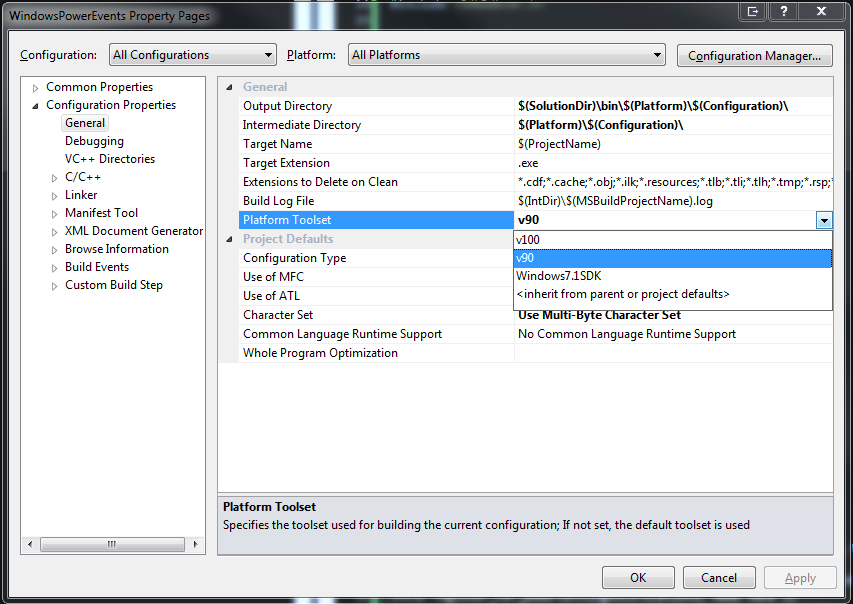I’m currently working on a little native C application using the C-runtime libraries (CRT) to detect Windows power events. I ran into a problem when testing my application on Windows XP Professional 32-bit RTM (e.g. “Gold Release”, no service packs). When I attempt to run the application, I get the following error message:

Huh?!
After a little digging, it turns out the Microsoft rather quietly discontinued targeting the Windows 2000 and Windows XP RTM/SP1 platforms with Visual Studio 2010. The last release that will target these platforms is Visual Studio 2008.
There were various suggestions on how to workaround this issue including recompiling the CRT, implementing the missing functions in your own w2kcompat.lib, FASM/MASM assembly magic, and reverting to using Visual Studio 2008. However all of these offered significant drawbacks for me. I do not want to be in the business of supporting a custom compiled version of the CRT. I don’t understand the assembly editing based solutions sufficiently to feel comfortable supporting them on x86 and x64 platforms in the field.
The workaround that works for me and that I ultimately used is to target the Visual Studio 2008 (VC 9.0) Platform Toolset from within my Visual Studio 2010 projects as suggested here and here. There were three key upsides for me with this solution:
- This seems like the most reasonable option to support in deployments. No custom builds and no assembly hacking.
- I can continue to use VS2k10 and all it’s goodness. (Well, almost. Any feature added in the VC10 runtime won’t be available. )
- This modification can be done on a per project (and actually, per Build Configuration) basis, so I don’t have to make system-wide changes to my VS install.
The major downside to this option is that it requires me to have Visual Studio 2008 installed, but this was something I was willing to live with.
One way to accomplish this workaround that was suggested is to place the path to the Visual Studio 2008 VC libs (e.g. “C:\Program Files (x86)\Microsoft Visual Studio 9.0\VC\lib” for 32-bit builds) first in the Additional Library Directories under the Linker options for your project. This messy because you have to do this for every configuration of every project in your solution that needs it and it varies for x86 versus x64 builds. Making matters worse is that the location of these files may vary from system to system, so what works for one developer’s machine may not work for another. Not ideal.
The cleaner and easier way to do this is to set the Platform Toolset in the project’s general properties pane. You still need to do this for each project as well as all configurations and all platforms. However, unlike the previous method, this one uses the same value across configurations and platforms and it’s portable across machines.

Leave a Reply